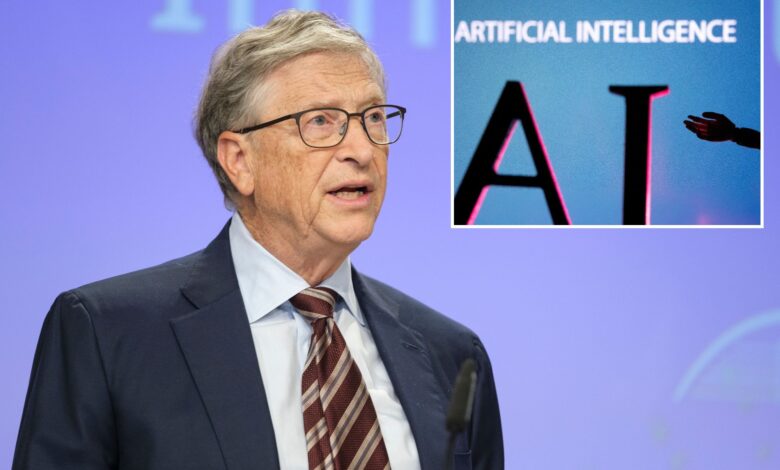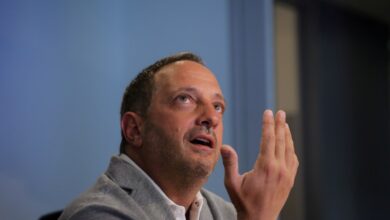Bill Gates says AI could allow humans to work three days a week

The rapid advancement of artificial intelligence could allow humans to reduce their workweek to just three days, since “machines can produce all the food and stuff,” according to Bill Gates.
“If you eventually get to a society where you only have to work three days a week, that’s probably fine,” Gates told Trevor Noah. “Now what?” podcast on Tuesday.
Gates predicted that there may come a day when people “don’t have to work so hard” just to make ends meet.
His comments were reported by Business Insider.
In March, Gates wrote that the arrival of AI could have as big an impact on society as mobile phones and the Internet.
“It will change the way people work, learn, travel, get healthcare, and communicate with each other,” Gates he wrote in a blog post.
“Entire industries will reorient themselves around this. Companies will distinguish themselves by how well they use it.”
Last month, JPMorgan Chase CEO Jamie Dimon predicted that AI would allow people to work as few as three and a half days a week.
“Their children will live to be 100 and will be cancer-free thanks to technology and will probably work three and a half days a week,” the banking executive told Bloomberg.
Goldman Sachs analysts have predicted that generative AI could end up costing 300 million people their jobs.
But Dimon believes the fear of AI is unfounded.
“People have to take a deep breath, okay?” Dimon added when asked about the prospect of massive job losses.
“Technology has always replaced jobs,” the chief banker said. “[T]Technology has done incredible things for humanity.”
“But planes crash, farmers’ shoes get worn badly… there are negative things,” he said.
Gates has previously touted OpenAI as one of the Silicon Valley companies at the forefront of AI research.
The company was thrown into turmoil after its board of directors fired CEO Sam Altman, only for the company to bring him back five days later following backlash from investors and employees who threatened to quit en masse.
Before Altman’s ouster, several researchers sent the board a letter warning of a powerful AI discovery that they said could threaten humanity.
The previously unreported letter and AI algorithm were a catalyst that caused the board to oust Altman, the poster child for generative AI, sources told Reuters.
According to one of the sources, longtime executive Mira Murati mentioned the project, called Q*, to employees on Wednesday and said a letter was sent to the board ahead of this weekend’s events.
The ChatGPT maker had made advances in Q* (pronounced Q-Star), which some internally believe could be a breakthrough in the startup’s pursuit of superintelligence, also known as artificial general intelligence (AGI), one of the people said. to Reuters.
OpenAI defines AGI as AI systems that are smarter than humans.
Thanks to enormous computing resources, the new model was able to solve certain mathematical problems, the person said on condition of anonymity because they were not authorized to speak on behalf of the company.
Although they only performed math at the level of elementary school students, passing those tests made the researchers very optimistic about Q*’s future success, the source said.
With pole cables




